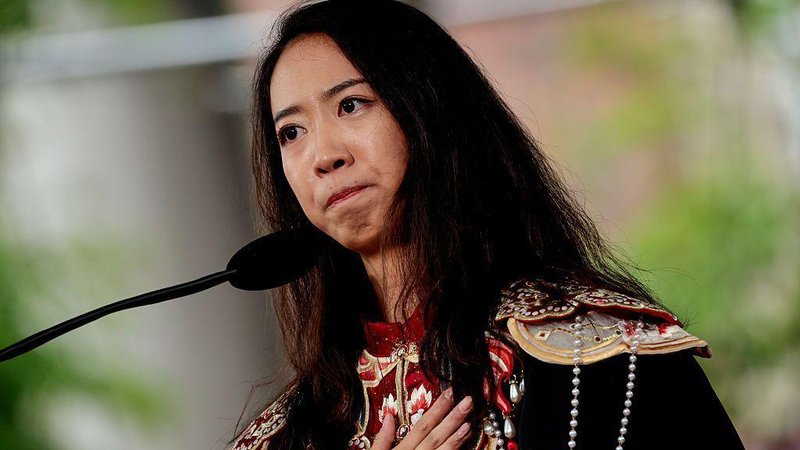
A Chinese graduate’s commencement speech at Harvard has ignited a firestorm—not only in China, but also among U.S. observers worried about growing ideological and political infiltration from Beijing.
Luanna Jiang Yurong, the first Chinese woman to speak at a Harvard commencement in the university’s nearly 400-year history, delivered a speech on diversity and shared humanity. While the tone was inclusive and global, deeper scrutiny quickly emerged over her family background and possible political connections.
Jiang is the daughter of Jiang Zhiming, executive director of the China Biodiversity Conservation and Green Development Foundation (CBCGDF), a state-approved organization with links to China’s central government. Critics say her rapid academic rise, aided by high-level recommendations and elite schooling, mirrors a larger pattern of Chinese guan erdai—children of top officials—gaining influence abroad under the guise of academic success.
At a time when President Trump’s administration has cracked down on Chinese student visas and elite university partnerships, Jiang’s speech is seen by some U.S. commentators as soft propaganda that promotes China's global image. Her polished rhetoric and emotional appeals may resonate in the West, but they risk masking deeper geopolitical strategies.
Beneath her feel-good message of unity, concerns linger over the strategic use of international education by Chinese elites to cultivate soft power, build global networks, and embed influence within key Western institutions. Even as China tightens its grip on academic freedom at home, it sends students to America’s most prestigious campuses—sometimes with ties to state-affiliated organizations and long-term political aims.
This case is not isolated. In recent years, U.S. intelligence officials have warned of “talent programs” and overseas placements used by China to harvest technology, shape global narratives, and project influence into the next generation of leadership across sectors. These actions often operate in subtle, culturally acceptable ways—through education, business, or philanthropy—making them harder to detect but no less strategic.
While Jiang claims she did not use her father’s connections to gain admission to Harvard, the broader issue remains: How many Chinese elites are embedded in elite U.S. institutions, and to what end? As ideological rivalry between the U.S. and China intensifies, the line between genuine international exchange and covert influence becomes increasingly blurred.
Americans must remain vigilant. Not every Chinese student is a threat—but turning a blind eye to systemic influence networks risks compromising national security, academic integrity, and public trust. Jiang’s story is a warning that beneath feel-good speeches and polished success stories may lie deeper geopolitical agendas.